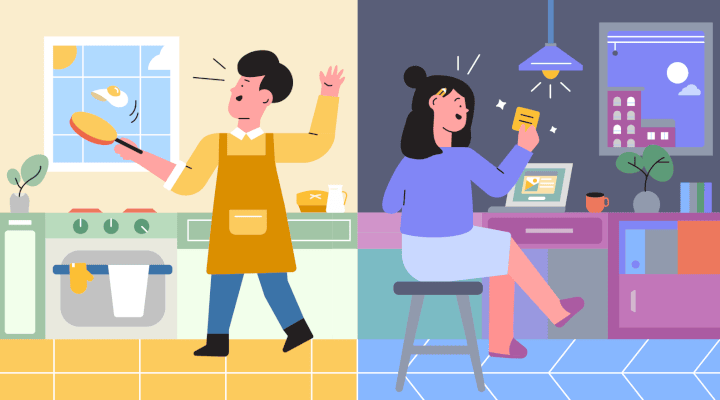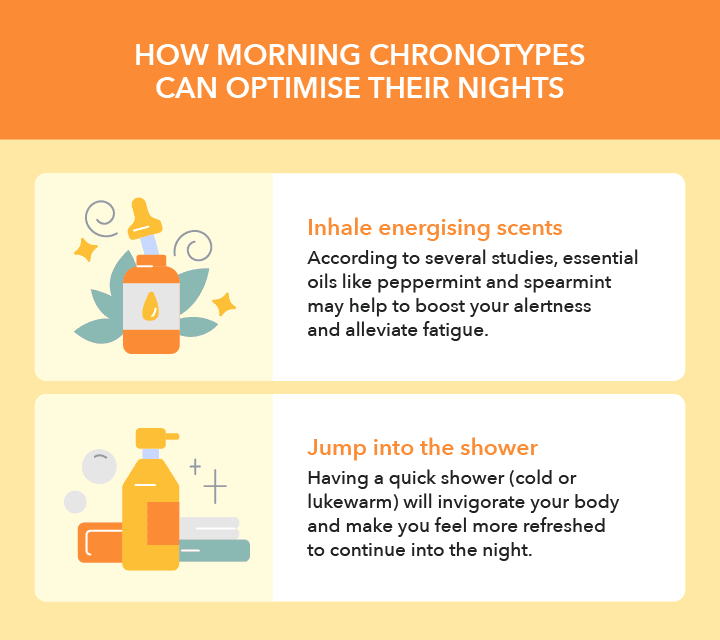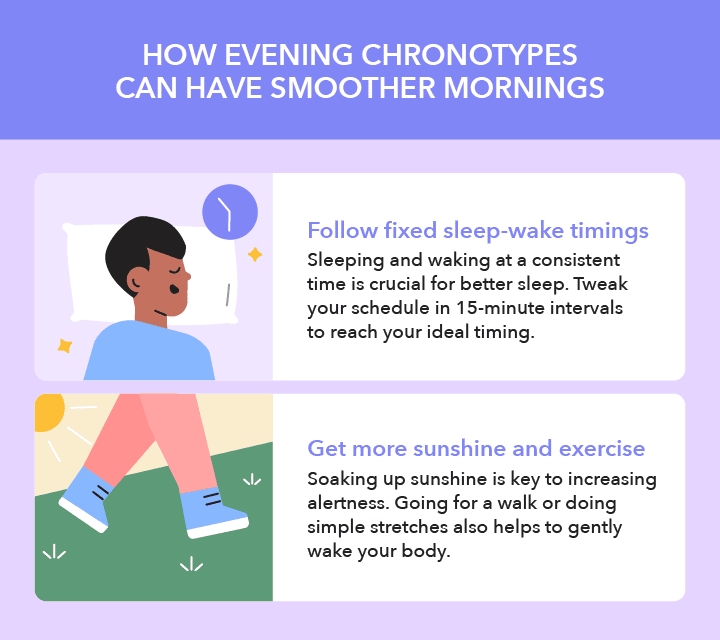Rise And Thrive: Cracking The Code Of Your Chronotype

Your alarm goes off in the morning. Do you hit the snooze button or are you already whipping up breakfast at the crack of dawn?
When it comes to sleep-wake patterns, “early birds” go to sleep and rise early whereas “night owls” are those who stay up late.
According to sleep coach and author Nick Littlehales, this classification is called a chronotype – your internal “sleep clock” that influences when your body prefers to be awake or asleep.
In essence, early birds are morning chronotypes, while night owls are evening chronotypes. Chronotypes exist on a spectrum, with most people typically being somewhere in the middle of these two chronotypes.
Although chronotypes are determined by your genes and age, you can establish lifestyle habits that help you feel more awake or sleepy at certain times.
How To Plan Your Day According to Your Chronotype
Morning Chronotypes
Morning chronotypes (aka morning birds) usually wake up naturally without an alarm and their performance peaks in the morning.
For morning chronotypes, use the early waking hours to do work that requires deep focus and dedicate your afternoons to shallow work.
When you feel drowsy in the afternoon, do some light stretches or take a walk to refresh yourself. Alternatively, take a short 10-20 minute power nap to recharge and increase your productivity.

Evening Chronotypes
Evening chronotypes (aka night owls) prefer to wake up later in the day and are most creative and productive at night.
For evening chronotypes, optimise your day by doing work that requires less energy. Use the afternoons and evenings for more cognitively demanding tasks. For morning meetings, soak up some sun and sit near a window if possible. Sunlight signals your body to start releasing serotonin, a feel-good hormone that keeps you focused and awake.
Although you may prefer later sleep-wake timings, you may not get enough shut-eye if you have early morning commitments. Communicate your needs to family members and colleagues, and try to fairly negotiate who should take on morning and night time duties.

Tips to Improve Your Overall Alertness
Besides drinking your favourite cuppa, there are many ways you can boost your energy, mental focus and productivity.
- Eat a yummy breakfast
As basic as it sounds, eating breakfast signals to your system that it’s time to wake up. To make getting out of bed more appealing, prepare your breakfast in advance and choose something you like to eat. - Optimise your morning coffee
When you wake, your body releases cortisol to keep you alert. Delaying your cuppa till an hour or so after waking (when cortisol levels dip) will give you that true caffeine kick you’re looking for. - Catch your Zzzs…
Not getting enough sleep makes us feel tired, leading to a loss of focus and productivity. According to the Health Promotion Board, we need at least seven hours of sleep to help our bodies recharge and perform well the next day.
How To Improve Sleep Quality
For a good night’s rest, sleep technician Jo Ng recommends creating good habits and an environment ideal for sleeping. Factors such as light, bedding, temperature and time all affect sleep.
For a good rest:
- Invest in blackout curtains to block out light that hinders sleep
- Choose bedding that promotes a healthy sleeping posture
- Separate any workspaces in the bedroom with a room divider
- Cool the room (e.g., with aircon) and lower your core temperature before sleeping
- Create healthy associations with bedtime by avoiding doomscrolling and working in bed.
But if you still struggle to sleep within 30 minutes, or feel constantly tired, you may have sleep apnea, adds Jo. One in three Singaporeans have sleep apnea, where blocked airways prevent restful sleep. Symptoms include snoring, gasping for air and waking up frequently. The condition can be assessed by sleep tests at home or in a hospital.
- POSTED ON
Aug 31, 2023
- TEXT BY
Lei Ng
- ILLUSTRATION BY
Lei Ng








